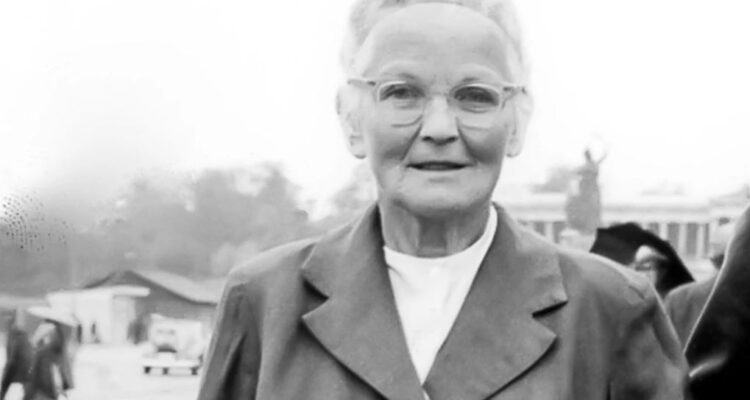In June 1942, Judith Hochegger sat in a German jail cell, hours from her execution.
Her situation looked hopeless. Her “crime” was following a religion that Nazi leader Adolf Hitler didn’t like – the Jehovah’s Witnesses.
But there was an extraordinary reprieve. She prayed for God to save her, and at 3am, an hour before the planned beheading, Hochegger had a stroke and was taken to hospital. The execution was called off.
In 1940, she had been “witnessing”, or preaching to colleagues, at a factory where she worked as a cleaner and commented that a picture of Hitler should be cleaned.
She was dobbed in and police found copies of the banned Jehovah’s Witnesses magazine The Watchtower in her apartment in the Austrian town of Waidhofen, west of Vienna. She was tried and jailed in Aichach, Germany.
After two years, she refused to stop preaching in prison and was sentenced to death. The Nazis offered to free Hochegger if she signed a document renouncing her beliefs, but she refused.
After the stroke and cancelled execution, Hochegger was resentenced and sent to Ravensbruck concentration camp, north of Berlin, where she was subjected to starvation, disease and physical abuse for the next three years.
In later life, after migrating to Moe in the Latrobe Valley, about 135 kilometres south-east of Melbourne, she would tell her daughter, Louise Gahleitner, of her horrific experiences.
Read the article by Carolyn Webb in The Age.

